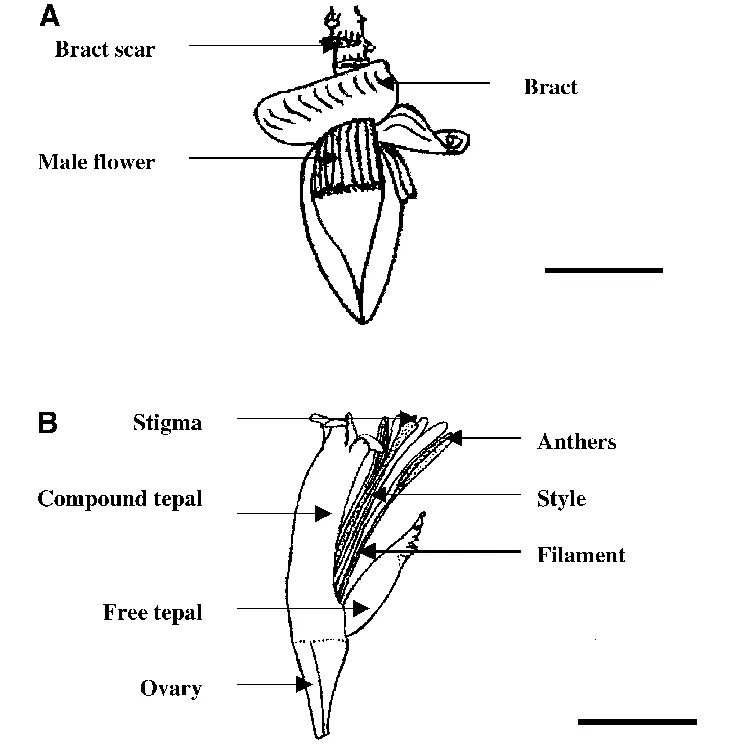Is Banana Dairy? The Truth About Bananas and Milk Products
If you’re a food lover or health enthusiast, you may have wondered whether bananas are considered dairy. Dairy is typically defined as products derived from milk, but where does that leave bananas? In this article, we’ll explore the question of whether bananas can be considered dairy, as well as delve into the nutritional value of this popular fruit. So for those looking to learn more about bananas and their relationship to dairy, keep reading.
What is dairy?
While the topic of dairy may seem unrelated to bananas at first glance, it is important for individuals looking to maintain a healthy diet to have a comprehensive understanding of all food groups. Dairy refers to products that are derived from milk, such as cheese, yogurt, and butter.
Milk itself contains essential nutrients such as calcium, protein, and vitamin D that can contribute greatly to overall health. However, it is important for individuals who are lactose intolerant or have allergies to milk proteins to seek alternative sources of these nutrients.

In recent years, there has been debate about the ethical implications of consuming dairy products due to concerns about animal welfare and environmental impact. It is important for consumers to educate themselves on these issues and make informed choices about their dietary habits.
Overall, while bananas may be a popular fruit choice among health-conscious individuals, understanding the role of dairy in a balanced diet can lead to better overall health outcomes.
What is a banana?
The banana, scientifically known as Musa acuminata, is a tropical fruit that belongs to the genus Musa. It is one of the world’s most popular fruits and has been cultivated for thousands of years.
Bananas are herbaceous plants that belong to the same family as ginger and cardamom. They grow from underground rhizomes and produce large, elongated leaves that can reach up to nine feet in length. The banana plant produces a cluster of fruits called “hands” which can contain anywhere from 10 to 20 individual bananas.
The banana fruit itself is oblong in shape with a curved appearance. It ranges in size from small finger bananas to larger Cavendish varieties commonly found in grocery stores. Bananas come in a range of colors including green, yellow, red and even purple depending on the variety.
Aside from being deliciously sweet and portable, bananas are also packed with essential nutrients such as potassium, vitamin C and fiber. They have long been touted for their health benefits which include improved digestion, lowered blood pressure and reduced risk of heart disease.
In conclusion, the humble banana may seem like just another fruit but it has an interesting history and impressive nutritional profile. Whether enjoyed on its own or used as an ingredient in cooking or baking recipes, this versatile fruit is worthy of its popularity among people worldwide looking for healthy snacks or meal options!
Are bananas a dairy product?
The question of whether bananas are dairy may seem absurd to some, but for those who suffer from lactose intolerance or dairy allergies, it is a serious concern. The answer, however, is quite clear: bananas are not dairy.
Dairy refers to products that come from the milk of mammals such as cows, goats, and sheep. Bananas are a fruit that grows on trees and have no connection to mammalian milk whatsoever.
It is understandable why someone might think bananas are dairy due to their soft texture and creamy flavor. However, this misconception can be harmful if someone with a dairy allergy avoids eating bananas because they believe they contain milk.

In fact, bananas can be an excellent alternative for those who cannot consume dairy products as they offer many health benefits such as potassium and fiber. So rest assured, if you’re wondering whether your banana smoothie contains any trace of cow’s milk – it doesn’t!
The nutritional value of bananas is high.
Bananas are a nutritional powerhouse that should not be overlooked in any diet. Rich in potassium, fiber, and vitamins B6 and C, bananas offer a host of health benefits to those who consume them regularly.
Potassium is a key nutrient for maintaining healthy blood pressure levels and preventing heart disease. Bananas are one of the best sources of this essential mineral, with just one medium-sized banana providing over 400mg of potassium.
In addition to their potassium content, bananas are also rich in fiber. Fiber is important for maintaining digestive health by promoting regular bowel movements and preventing constipation. It can also help regulate blood sugar levels and reduce the risk of diabetes.
Vitamins B6 and C contribute to overall immune system function by helping the body produce white blood cells that fight off infection. They also play a role in skin health by promoting collagen production and protecting against UV damage.
It’s easy to see why bananas should be included as part of a healthy diet. Whether eaten as a quick snack or added to smoothies or baked goods, this versatile fruit offers numerous nutritional benefits that support overall well-being.

Check out our other articles to find out even more about banana.
The Ultimate Guide to Knowing When Your Banana Bread is Done: Tips and Tricks for Perfect Baking! »
Bananas are a nutritious and delicious fruit that can provide many health benefits. They are not considered dairy, but they do contain several essential vitamins and minerals. Bananas can be enjoyed as part of a healthy lifestyle in many different ways, from adding them to smoothies or salads to simply enjoying the fresh flavor on their own. If you’re curious about bananas and want to learn more about this delicious fruit, check out our other articles to find out even more!








